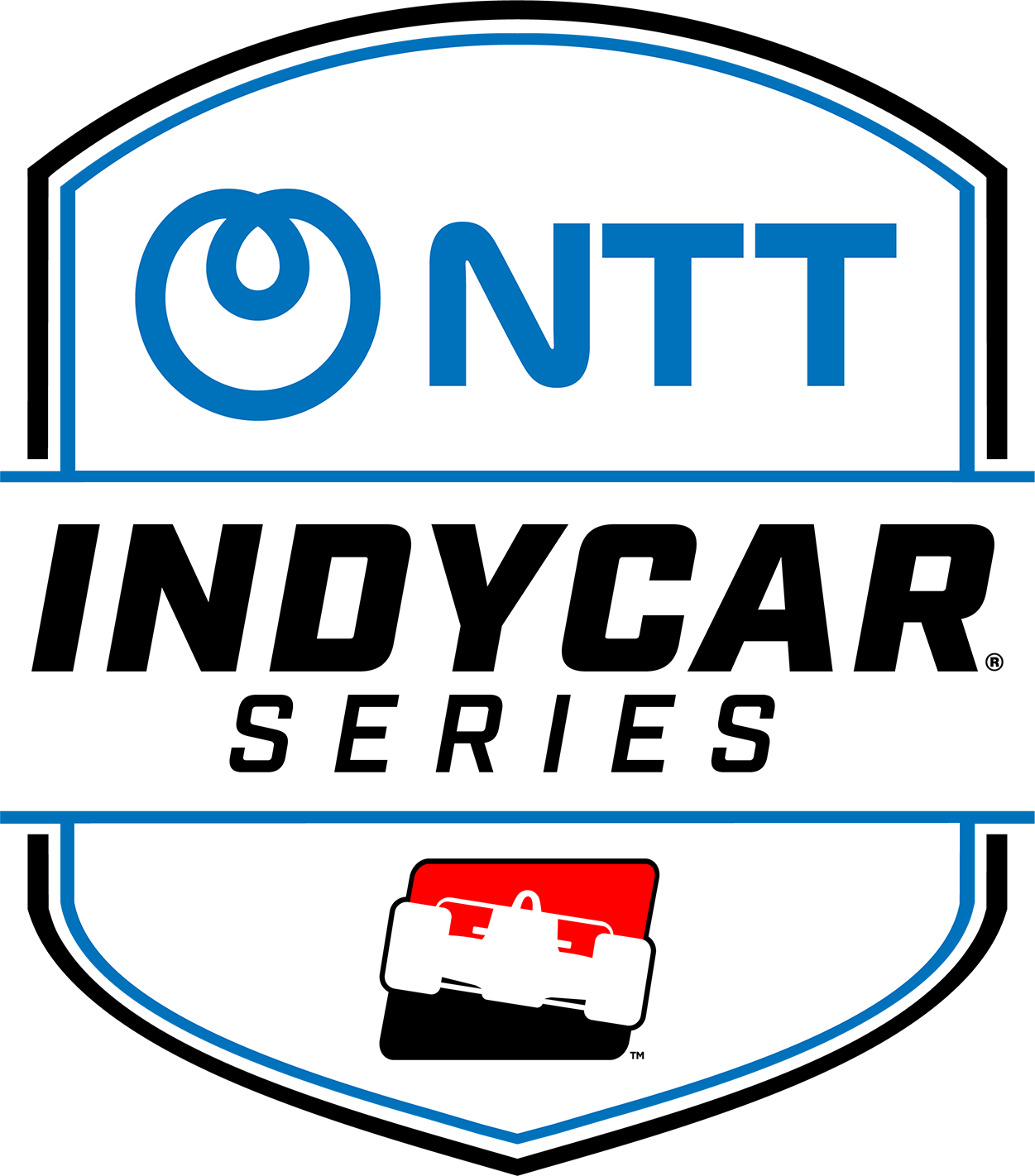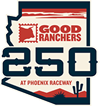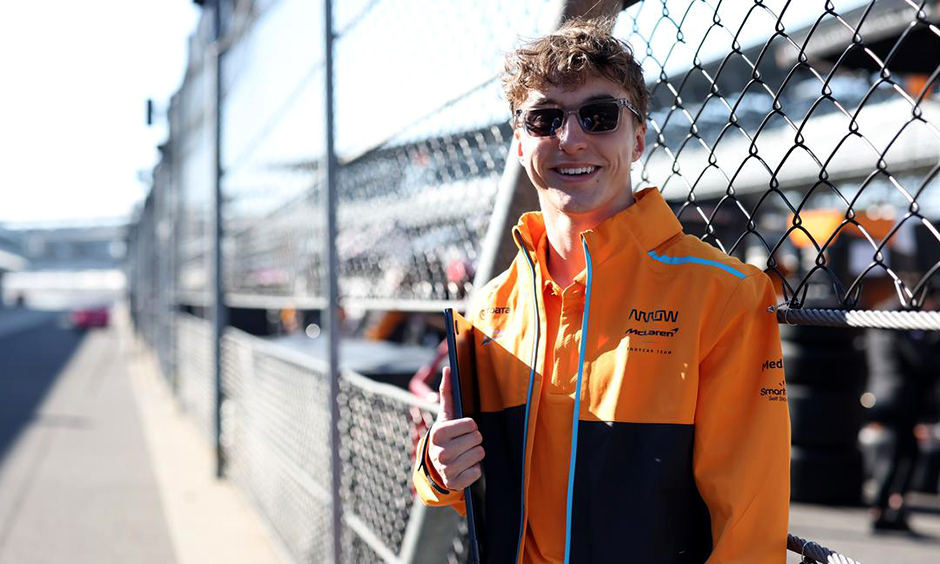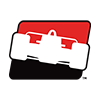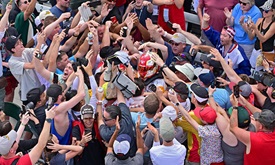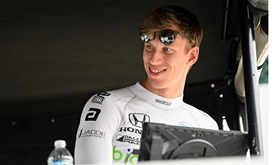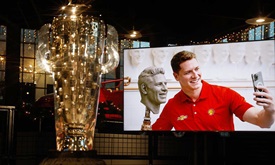Catching Up With ... David Malukas
DEC 21, 2023
Greatness comes to those who wait. That’s the advice David Malukas now would give to his younger self.
Malukas, 22, is the newest full-time member of Arrow McLaren as he takes over the reigns of the No. 6 Arrow McLaren Chevrolet in 2024. By doing so, he leaves behind not only his family team (HMD Motorsports), which has a partnership with Dale Coyne Racing, but he will also leave behind his family and embark on this new journey.
Malukas recently moved from Illinois to Indianapolis to be closer to Arrow McLaren’s headquarters. Malukas describes it as the first proper move away from his parents. He had a few instances where he lived in England and Germany, but those were only for a few months. This move is real. He will stay gone now.
Moving has already changed the way he and his parents have communicated.
“I mean, it's definitely been more of an effect on their side because I'm actually the last kid to move out from my parents,” he said. “So, it's for them, I think it's like really starting to hit home because they keep calling me like every day like just because. They used to call me just when they needed stuff. They now call me and say ‘What's up?’ And I'm like, ‘You know, building and stuff like, do you need me? No, OK, I got to keep building.’
“I can tell that they're definitely feeling down on that side.”
Malukas doesn’t think it will stay that way long though. HMD Motorsports has a shop in Indianapolis and Malukas’ father, Henry, has an office in it. The trucking company is based in Chicago, but Malukas expects his parents to visit often since he and the shop are in Indy.
“I'm pretty sure they're going to be coming here,” he said. “When they were helping me unpack everything, they were in the guest room and talking about how it's their room.”
As far as how the rest of the offseason is going, Malukas said it’s been amazing. He and Arrow McLaren have already hit it off.
“The hybrid testing honestly came out pretty lucky because I was able to almost immediately get into the car quickly following Laguna Seca,” he said. “So, from a standpoint of like, I still remember how the Dale Coyne car felt, what are the correlations, the similarities, the differences, and to kind of get myself suited and to feel comfortable with the new car and the new people and with each test. It's kind of in a rotation from engineers and mechanics, so I've kind of been able to get to know everybody and hang out and it's amazing, the crew, the environment, it's definitely a little bit more corporate as well more people, but at the same time, they still have that core family orientation that you find through the ranks of go karting. Just really good family and pretty close together and I just love it. It's amazing. It's going to be a good season for sure.”
Among the other topics discussed:
Question: Going from a Dale Coyne Racing car to an Arrow McLaren car in that short amount of time, can you feel the difference behind the wheel?
Malukas: I mean, it feels like a completely different car. And I know from the perspective, you know, as (people) say, it's a spec series, it is very different. With the way racing drivers and driving styles, you can't say one car is bad or one car is good. It's more in the fact that that they are just very different and what suits your driving style is going to be the right fit for you. There have been some changes with the Arrow McLaren car that I've had to adapt to and I kind of have a program of what I need to work on by the time the next season starts. But at the same time, it's taking everything with a bit of a grain of salt because all the testing we've done has been with hybrid and hybrid has made a big change with the car. So, it kind of is like a big difference or is this just the difference of the hybrid? Which those answers I'm still trying to get at because I'm talking with other drivers that are doing hybrid that would give me some information from their side, like what differences they feel from the car. But then again, you also have to take that with a grain of salt because at the end of the day, they're friends off track, but on track, they're competitors. So, it's like, are they really telling me the correct information?
Question: In 2022 at World Wide Technology Raceway, you had a breakout race with a podium that night. During the race, you made the comment, “those are Penskes.” Now, 16 months later you’re an Arrow McLaren driver and that’s now an expectation to be running with them on a weekly basis. Has that sort of surreal feeling worn off a bit and if not, how do you harness those emotions?
Malukas: Yeah, I'd say towards the end of this last season. I kind of started to get more and more comfortable and used to being side by side with Penske (cars) and (Scott) Dixon and just kind of feeling that I’m there and I'm a part of the crew and you could tell from the drivers themselves that they drive differently with me. You could sense there's a bit more respect in that perspective. I do feel a little bit more involved and of course, going to Arrow McLaren obviously, the goals have changed. And you know, it's a very competitive team and the whole goal is to try to go at it and win races, get the championship, win the (Indy) 500. Those are the goals now. So, from that perspective it’s following what the team wants. My perspective also changes on things and now I will. It's definitely going to be looking at a Penske and it's going to be like OK, let’s go, fair play, here we go.
Question: Talking with drivers across various forms of motorsports, they often say the battle mid-pack and that even outside the top 10 is a completely different race and intensity than the one that’s happening up front. Do you feel that in the NTT INDYCAR SERIES?
Malukas: One hundred percent. And the reasoning for it is the people that are in these better cars that are very consistent though the weekends, they tend to be fighting for a championship right? So, when you go to these races, they're fighting a lot more cleanly because they want to make sure that the car will finish and they think from the long-term perspective of getting points and getting a championship and wins. You know from my perspective, being from the back end, you know, championship is always in the back of your head, but it wasn't really like a big deal. You go from ‘OK, if I have a moment it's going to go from in the championship from 13th to 14th. Like does that really in the long-term? Does it really affect me? Not really.’ So, from the backend side of things, your whole goal is like, try to be as aggressive as possible so we can just have like a one-off win or get a really good result on the podium or something and do some crazy risky thing. When in the front, it's all about OK, let's be conservative. Let's play more fairly. I already have noticed that in tracks like Nashville, for example, where we ended up qualifying in the Fast Six and starting from there. I mean, it's a completely different race and everybody's not dive bombing nearly as much. Everybody's a little bit more relaxed. They're trying to actually plan it out and think and think the long-term perspective, maybe start fuel saving, saving tires and waiting for the right moment. And that's definitely going to be for sure how things are going to be going into this next season.
Question: Compared to where you’re coming from to where you are now, it’s a massive jump in regards to personnel. How do you manage that? The Arrow McLaren drivers last year talked about the difficulty when the organization brought in a lot of new faces too. I also look at Simon Pagenaud in going from Schmidt Pedersen Motorsports in 2014 (two wins, eight top-five finishes, fifth in the championship) to a team at Team Penske in 2015 (no wins, four top-fives, 11th in the championship). Could 2024 be more of a learning curve than some may think?
Malukas: One hundred percent. You know, all of these drivers are very talented and it's not like you go to a bigger team and all of a sudden it's just like, ‘Oh, well, the cars going to be better, things are going be great and you're just going to be a lot quicker and more successful.’ It's basically just a completely different beast. You have all these personnel, all these resources, and it's just trying to figure out how to use all of that to the best of its potential. Thankfully from my side, I've been able to work a lot with (Tony Kanaan) and will continue to work with him throughout the season. TK's explained to me how he's gone through similar situations through him going from being in a bigger team to a smaller team and he knows that change and that difference and how to used everything to the best of his ability to where as a driver, you can actually become more talented, you can learn a lot more and get better. So that's kind of going to be the whole goal is you know, I'm still 22 years old, still have a lot of learning to do. And thankfully, with Pato (O’Ward) and (Alexander) Rossi as teammates, they have two very different styles, very different perspectives on driving and I can learn at the same time while being competitive. So, it's going to be trying to get all that and put it all together and it's definitely going to be in its own kind of challenge.
Question: Looking back on the 2023 season, obviously not the season you would have wanted but it was enough to land you with this ride, how would you describe the emotions from what seemed like a wave from the outside?
Malukas: Looking at it as a whole, I feel like there were definitely some big changes from my first season to my second season. We had some key people that had left the team and kind of had some big changes. I started off the season decently strong. But from Long Beach to kind of like throughout the mid-season, we really had like a big drop in performance. And it was a really big struggling period. And from that standpoint, we did sort of start coming kind of going back up towards the end of the season and finding kind of a good group, but I just think it took a little bit too long from a second season type of standpoint. So firstly, from performance wise, I thought it wasn't it wasn't great, you know, especially from my side, things could have been a lot better, especially keeping my myself at ease because I've been really wanting to try to perform and have a better second season, when I think we probably really had maybe somewhat similar. I would lose my temper a little bit too quickly, things like that, I kind of had to kind of work on throughout the season. And yeah, the results weren't really what we wanted to when we started the season. So, a little bit kind of a letdown from my standpoint of what I really wanted. But I'm happy that at least when things were going downhill, you know, there was a lot of highlights, from the ‘500 where we unloaded was a car that wasn't really good and we were fighting with Rahal (Letterman Lanigan Racing) at the end of it, but we kept trying really, really hard throughout all of qualifying day. And you know, right at the end, we managed to put everything together we had three really good laps, and we qualified, 25th or 26th (was actually 23rd) or whatever it was and from our standpoint, it was a very, you know, successful result because it's like, well, I mean, we took a car that that we didn't have anything and we just worked our butts off to make it actually somewhat competitive for the race. Then towards the end of the season throughout that whole bad mid-season we still kept on working on it and we got to the Fast Six in Nashville and started to get performances. We had another podium at Gateway (World Wide Technology Raceway) so it was a bit rough but I'm happy that we still persevered and still started going forward at the end.
